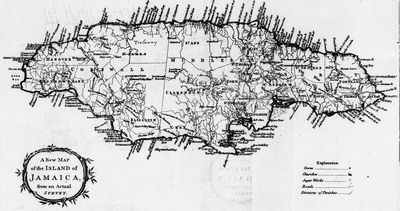Slavery Through Time: from Enslavers to Abolitionists, 1675-1865

Slavery: Advocacy & Opposition, 1675-1865
Official Reports on the Conclusion of the Slave Trade in Africa, 1811-1865; Ord report on the West Coast of Africa, 1865; img 4Mar 1865
Access the full collection
Get full access to Slavery Through Time: from Enslavers to Abolitionists, 1675-1865.
Institutional Free Trial
Sign up for a FREE trialSingle User License
Purchase a license below to view the full collection.
Already have a license? Sign in to view the collection
Discover how abolitionists argued for the prohibition of the slave trade

This collection explores and offers varying perspectives on the explosive debate around the Transatlantic Slave Trade during the 17th, 18th, and 19th centuries. The documents, through a combination of correspondence, pamphlets, memoirs, and statistics, track both the proliferation of British power and the enslavement it was built upon, as well as the moral critiques that arose as a reaction to the horrific practice.
The focus of the documents coalesces around how enslavement and trade manifested in the West Indies, one of Britain’s most valuable colonial assets. Unsurprisingly, those who stood most to lose from the abolition of slavery, namely the business community and plantation owners, undertook activity to convince people of the benefits of slavery. On the other hand, religious and other civil society groups formed the bulwark of opposition to slavery and their resistance is documented through various society papers.
Culminating in a victory for the abolitionists, slavery was officially banned in British territory in 1832. Documents featured in the collection after this time examine the impact of slavery, both from a humanitarian and financial standpoint.
Contents
Slavery Through Time: from Enslavers to Abolitionists, 1675-1865...
Slavery: Advocacy & Opposition, 1675-1865
Discover
Volumes
Insights
- Records from the Slavery Business' include both letters and ledgers. Some ledgers contain details of slaves working on specific plantations. While the log from the Black Prince describes a slaving voyage.
- Most of the 'Correspondence from Planters and Traders' is handwritten by the merchant Samuel Martin. Similar content can be found in the typed 'Pares Transcripts' within this group.
- The 'Official Reports on the Conclusion of the Slave Trade in Africa' include an 1811 report on the possible results of ending that trade. The other reports describe what actually happened for the government.
- The 'Anti-Slavery Papers' contain reports, society minute books, petitions and correspondence from those seeking to end slavery, both in Africa and in America.










